Search Results
Showing results 1 to 20 of 37
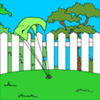
Gravity in Action
Source Institutions
Explore the effects of gravity on a slowly falling object: a parachute you make out of plastic bags, string and stones.

Loopy Geometry
Source Institutions
Discover geometry by creating shapes from loops of paper. In this activity, paper loops transform to give you totally new structures when you cut them.
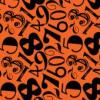
Guess My Number
Source Institutions
In this math activity, learners play a game similar to 20 Questions, in which learners must identify a secret number drawn from a bag.
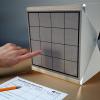
Exploring the Universe: Exoplanet Transits
Source Institutions
In "Exploring the Universe: Exoplanet Transits," participants simulate one of the methods scientists use to discover planets orbiting distant stars.
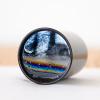
Soap Film on a Can
Source Institutions
The beautiful iridescent colors of a bubble in a can! With this Exploratorium Science Snack, create beautiful soap films on the open end of a can to see beautiful rainbows of color.
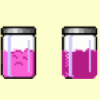
See It to Believe It: Visual Discrimination
Source Institutions
In this activity (12th on the page), learners investigate their ability to discriminate (see) different colors.
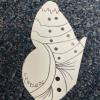
Butterfly Life Cycle
Source Institutions
In this activity, learners will explore the insect life cycle by making a model.
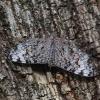
Butterflies and Moths: Camouflage
Source Institutions
In this activity, learners make a camouflaged butterfly to hide outside for others to find.

Morning Star and Evening Star
Source Institutions
This demonstration activity models how Venus appears from Earth.
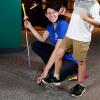
Exploring the Solar System: Stomp Rockets
Source Institutions
In "Exploring the Solar System: Stomp Rockets," participants learn about how some rockets carry science tools—not scientists—into space, and how a special kind of rocket called "sounding rockets" can
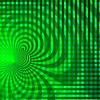
Magnetic Shielding: Magnetic lines stop here
Source Institutions
Testing magnets is always a fun pastime, but here, we're going beyond "will it attract the magnet?" In this activity, learners will investigate which materials allow magnetic fields to pass through or
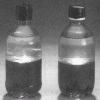
Miscibility
Source Institutions
Learners observe a bottle containing water and oil. They are invited to pick up the bottle and mix the contents together.
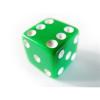
Nice and Nasty
Source Institutions
In this math game, learners throw dice and place the numbers in one of four boxes. Learners repeat this three more times and the learner with the largest four digit numbers is the winner.
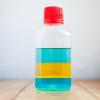
Klutz-Proof Density Column
Source Institutions
Making liquids of different densities to perfectly lay on top of each other can be a frustrating exercise. The Exploratorium created this activity as a fool proof way of making a density column.
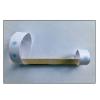
Hoop Glider
Source Institutions
In this activity, learners will experiment with the physics of flight by making a gliding contraption with strange looking wings. The activity explores flight with connections to the natural world.
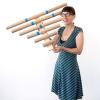
Pipes of Pan
Source Institutions
Create an instrument that you don't play--you just listen to it through tubes of various lengths.

Sumo
Source Institutions
In this version of a Sumo wrestling bout, players use mathematical skills to move their opponent's counter beyond the track and "out of the ring." Learners reveal playing cards and the player with the

Eyedropper Hydrometer: Buoy your understanding of density
Source Institutions
Build a hydrometer (measures the density of a liquid) using a pipet or eyedropper.
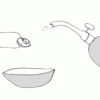
Physical Change
Source Institutions
In this activity, learners use heat to separate zinc and copper in a penny. This experiment demonstrates physical properties and how physical change (phase change) can be used to separate matter.

Mind-Reading Magic
Source Institutions
In this activity, learners recreate a method of detecting and correcting errors in computers called 'parity'.
